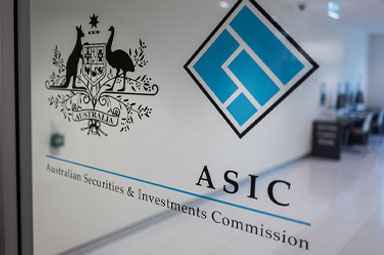Could tax deductible advice be the issue that unites the industry?
Given the competing interests at play in financial advice, it is often hard to get all sides to agree on the crucial issues that could transform the industry for the better, but one has emerged recently that has the potential for universal support.
While moderating the comments section of ifa this month, I was struck by one particular comment from an advice practice owner on a story about a spat between two industry associations.
“One of my advisers had a meeting with Jane Hume when she was in Queensland and it was made quite clear – until there is one body representing the industry, the government was not listening to any of them,” the reader said.
“The problem with the associations is like all the football associations – all on high salaries and too much self-interest.”
Whether you agree with the comment about the motivations of the associations or not, the point about the lack of common goals among the disparate sections of the advice industry is an apt one.
There are certainly understandable reasons for much of the ill will that these different tribes bear towards each other. Recent regulatory regimes such as the life insurance framework have disparately affected privately owned advice firms, leading to the perception that institutionally aligned advisers have had it easier over the course of regulatory change.
Meanwhile, the best interests duty has also put in-house super fund advisers at an advantage through the lack of paperwork needed to provide general versus personal advice. At the same time, there are also disagreements about what constitutes independence, whether commissions or asset-based fees play a part in the future of the industry, and therefore who should and should not be considered ‘professional’ in their approach.
I’m not disputing the validity of any of these concerns, but is it not worth putting aside what the industry is perhaps never going to come to a consensus on, and thinking about what everybody does agree on?
This approach has seen some success in the accounting field of late, with CPA, CAANZ and the SMSF Association joining forces to create a blueprint for a simplified advice process around SMSFs. While it’s still early days in terms of the success of their alliance, it’s admirable and constructive to see these groups working together and speaking with one voice to government, with the voting power of an entire industry behind them.
To that end, I’ve discovered in my conversations with advice industry associations of late that there is actually one issue that everybody agrees would be positive for both the advice sector and consumers – pushing for some level of tax deductibility on advice fees.
FPA chief executive Dante De Gori first raised this as a key plank of the association’s ‘future of financial advice’ policy platform that will be rolled out later this year, following member consultations that identified advice access and affordability as a key area of concern for advisers.
“The government is looking for a number of ways they can support the Australian public to get back on their feet [after coronavirus], and access to advice is one of those,” Mr De Gori said during a recent ifa Show podcast episode.
“It’s something we would exercise judgement around the timing of when we would raise things [with the minister], but it isn’t completely wild for the government to be considering as part of a stimulus package to give some concessions for consumers in the cost of accessing advice.”
The AIOFP has also made tax deductible advice fees a key issue in its recent Consumer Advice Referendum campaign encouraging advisers to get their clients to write to their MP and agitate for better business conditions in the advice space, in order to reduce the cost of getting a financial plan.
The association’s director, Peter Johnston, while acknowledging the frustration of members that feel let down by lack of support from the larger associations in recent years, said it was key the entire industry comes together on measures that could reduce the cost of advice.
“To use a recent narrative from the government about COVID-19, ‘we are all in this together and need to support each other’ – this absolutely applies to the advice community, whether you are in the independently owned or institutionally aligned sector,” Mr Johnston said in a paper announcing the launch of the campaign.
“To be ultimately successful we need all advisers’ buy-in and to put aside petty political differences.”
AFA chief executive Philip Kewin also agrees that the time is now right for the advice industry to raise the possibility of making fees tax deductible – a conversation that may not have been as palatable in previous years given the sector may not have been seen as on a par with accountants in terms of professionalism.
“As an industry we’ve done a lot to increase the level of professionalism and bring advice into the mainstream, so I think it’s the next logical step,” Mr Kewin said last week.
“It could also help stimulate the economy coming out of the COVID 19 crisis because it will engage more people to be more actively involved in their money. Advice relates to better saving habits, better spending habits and more discipline around planning for the future.”
While there’s agreement that this would not be top of the government’s priority list at this exact point in time, it makes logical sense that in the medium-term aftermath of the crisis, as the government looks towards its October budget and plans to get the economy back into healthier shape, making advice tax deductible could surely be thrown in the mix of suggestions.
The idea also has good support among our readers, with 27 per cent of respondents to an ongoing ifa poll suggesting that providing tax incentives for advice take-up is the best thing the government could do to support advisers through COVID-19.
Given the persistence of doom and gloom of late in both mainstream and adviser news, this could be a positive story for the industry to get behind.
Sarah Kendell is editor of ifa
Subscribe to 
Never miss the stories that impact the industry.






